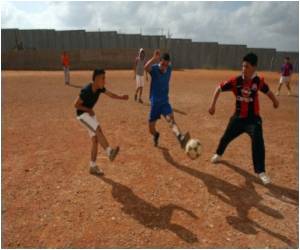
• 23% have read a brochure or online information
• 17% have watched a video or attended a presentation
• 11% have signed a waiver form, with no other educational component
• 49% report no concussion education at all
Concussion education is more common among parents of children who play sports compared to non-sports parents (58% vs 31%).
"It is good news that many parents report they have received concussion education. We found, however, that the format of that concussion education really matters. The way the concussion information is delivered is linked to the parents' confidence about managing their child's injury," says Sarah J. Clark, M.P.H., associate director of the National Poll on Children's Health and associate research scientist in the University of Michigan Department of Pediatrics and U-M Medical School.
"Many schools mandate that a waiver form to be signed, but the danger is that parents will skip over information to get to that required signature line."
The poll showed that 63 percent of parents who watched a video or a presentation rated it as very useful. Forty-one percent of parents who read a brochure or online information rated that as very useful.
Advertisement
"If the waiver is done online or on a form returned to school, parents may be left without information at home to guide them if or when their child is injured," says Clark, who is also a member of the U-M Institute for Healthcare Policy and Innovation.
Advertisement
Parents should get information about when to seek medical attention, monitoring the child's symptoms, and limiting physical activity until symptoms have subsided, says Clark. Health care providers also may recommend limiting homework and other mental activities to allow the brain to heal.
"Parents play a key role in deciding when a child returns to school and extracurricular activities, and concussion education can assist them in making good decisions," Clark says. "So one solution could be to offer multiple education formats to ensure that parents truly hear the concussion information rather than focusing on just signing a form."
Source-Eurekalert









